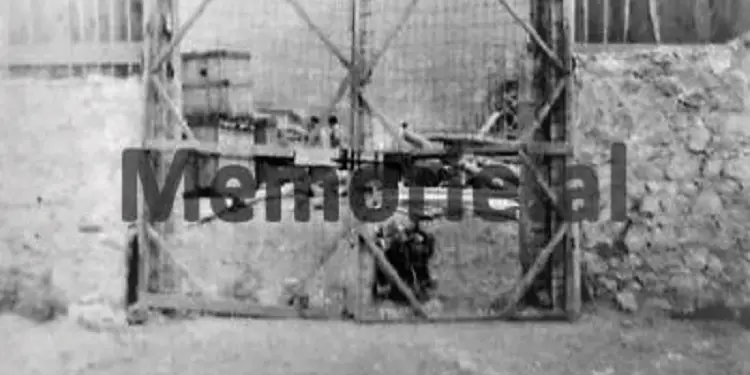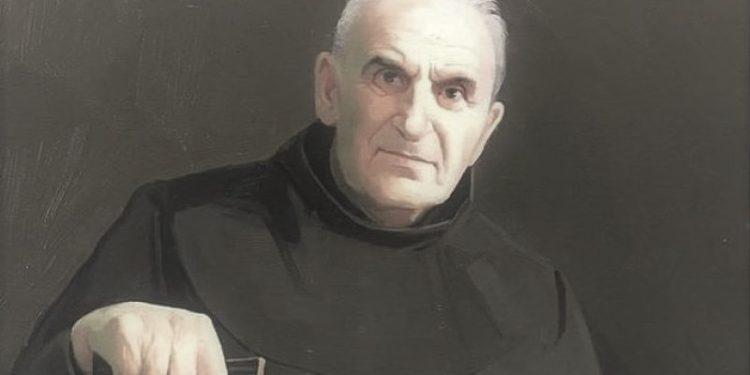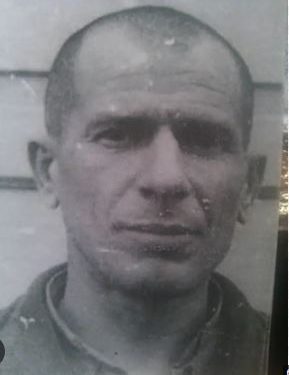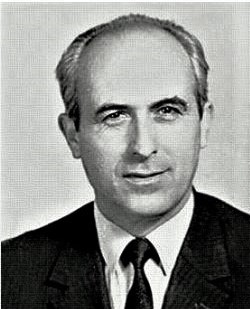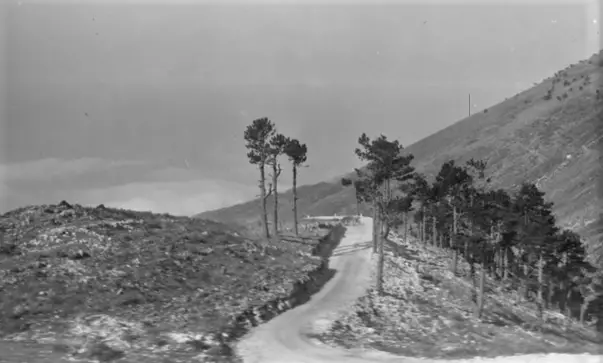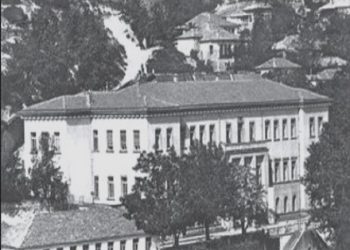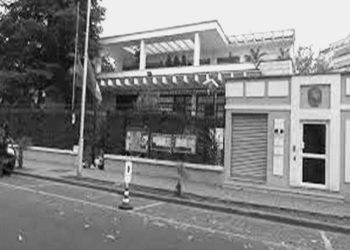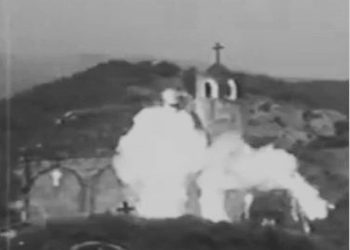By Petraq Xhaçka
Part thirty-two
Memorie.al/ The purpose of this book are to join the efforts made to present the truths and horrors of the communist dictatorship in Albania. The main purpose of the book is not to show our people or anyone else, that we oilmen have been innocent, because this has become known from publications in our press, from foreign televisions, as well as from direct meetings with the International Forum and the Albanian Human Rights. The author’s desire, is that through this story, along with other stories, fight any manifestation in any form, even moderate, that he may have to create a communist society. I think that even through this bitter personal history, the cruel, treacherous and overbearing face of Enverism will appear, that for half a century, held the knife with the tip in the chest of the Albanian people, with a pine eye, intercepting the movements for salvation from the outside, or rebellion of the people themselves, ready to push the knife to the heart, at the first movement. The events are set in the economic fields where it has appeared most strongly, such as the oil and gas industry, where I was fortunate to pour my energies, for a lifetime, and become a participant and witness in those events. All the events that are written in this memoir are true, not only without any exaggeration or embellishment, but perhaps, I don’t know how much I have been able to present the terrifying force of the events that took place in that decadent system of socialism, where no there was no human feeling.
Continues from last issue
I had the opportunity to meet people who, apart from charity, had not brought anything bad to this country, this people or even that system. Such were several Catholic priests imprisoned on false charges, for carrying concealed weapons in the church. They told us how the Security officers placed the weapons themselves in the altars and forced these religious servants to take pictures in the middle of this arsenal, which the day before had probably been in the warehouses of the Internal Affairs Branches. . Among them, I recognized Father Zef Pllumi, and many others.
They were distinguished for their broad culture, for their honesty, for their polite tribal behavior, and we had the pleasure of talking with them on various matters. No violence, no suffering could remove the great faith in God from their hearts and weaken their willingness to be His servants. In order to implement their imaginary scenarios, to convict, stripped of their popularity, any important person in party or state duties, the Security and the investigation, they previously arrested and sentenced some minors, who forced them to gather “facts” , on the hostile activity of the political opponent they annihilated. This was what he told me about himself, the head of the personal security group of Prime Minister Mehmet Shehu.
He was sentenced to ten years in prison, because when he had traveled in the company of the prime minister to go to New York, it had not been reported to us that Shehu had met illegally with Tito, who was traveling on the same ship. In fact, this ex-officer told me that he had never been on a steamship at all, and had never even been to America. But this was an insignificant obstacle in the way of the investigation. When they arrested him, they threatened him, adding the alternative that; or to appear as an eyewitness of Mehmet Shehu’s meeting with Josip Broz Tito, or they would charge him with other sins and put him in front of the firing squad. Naturally, he chose the path of false denunciation, which saved his life, hoping that this general madness would one day stop.
And throughout the prison, Mehmet Shehu’s boss was forced to keep the truth hidden. Only after he became convinced of our honesty, driven somewhat by the fear of death, when he had some heart problems, he hastened to confide this secret to a man and chose me. No one found out about me during the prison time. Now that he himself has announced this story to the world, I am also aligning it in these memories of mine, for the sake of similarity to our drama.
That power did not spare any person, whether great in office or small, whether simple or scientist, whether war veteran or hero of the people, whether artist or writer, whether single or family, it is enough that he was needed for his leadership scenarios. It is evidenced by the slogan “the party above all”, which was translated; “Enver Hoxha above everything”, contrary to the entire civilization that has the same motto, “homeland above all”. Then it would be noticed that in every song Hoxha of the Party was sung, and not Albania, so much so that the Albanians vegetated without a thread of patriotism.
Even today they do not know the words of the national anthem. It had been replaced with songs about the leader, especially in recent years, with the song; “Enver Hoxha, long live”. Note that even now in a hall where Albanians have gathered and are asked to sing the national anthem, some stutter because they do not know the words of the song. The notion of nation, people, and homeland was lost.
It was replaced by the slogan; “Enver-Party”. Anyone who lives and watches political, commemorative or sporting events in America never notices that the president is deified, but the country, America. Anywhere at the end of the speech, you hear the expression; “God bless America”‘. And a people of a country with such education always move forward. In America, it is easier to find a cartoon about the president than an article to praise him. Americans respect their first, but never put it above their homeland. This is the feature of democracy, while the opposite is the feature of dictatorship.
In our prison camp, there was the legendary prisoner Sami Dangëllia
In those days, he was sick with cancer and requested in letters to President Alia, to be released and to give him one last chance, to die near his family. Ramiz Alia did not answer and Dangelli was not released to die free, until he died in prison. You must know that with his forty-two years in prison, Sami Dangëllia, is the man who has broken the records of political prisons, not only in Albania, but without any doubt, in the whole world.
One day we mourned him by his bed, where he was suffering from an incurable disease, and we asked him why he was spending these forty-two years in prison?! He told us that he had been with the “Balli Kombëtar” party and for that alone he was sentenced to twenty years. They released him after this deadline, but since they weren’t giving him a job and he had nowhere to eat or sleep, he decided to escape to America. – “I had no other choice”! – Samiu said among others.
They had caught him at the border, exactly that day when he turned three months from the day of his release. For this escape attempt, without killing anyone, without committing any other criminal act, without any movement to overthrow the government, they sentenced him to death. They later reduced his sentence to twenty-five years. So just for these motives, he spent not a little, not forty-two weeks, not forty-two months, but full, forty-two years in prison, surpassing even the current Mandela by years, but especially with the cruelest conditions that they could have tried sometimes the prisons of the world. The length of the imprisonment should shake even icy hearts, like that of Ramiz Ali. But this did not happen and Sami Dangëllia was not allowed to go out, without paying off the few days of his sentence that were left…! They did not want to grant him even this one wish, that of dying in the arms of his people.
As I said above, in Zejmen, near Lezha, more than 300 people were kept locked up, mostly old and sick, unfit to work in the mines. The food in the camp was very poor. My friends and I were very hungry from the long investigation, but Nikoja happened to be very close to us and before our family members started bringing us food, our friend helped us, sharing with us all the food they brought from the house, as well as buying in the prison store with his money, from the few foods that were sold there.
He worked as a doctor in the camp, a person convicted of agitation and propaganda. He was careful with the sick and with competent and courageous interventions with very primitive means, which would not be believed if I described them, he prolonged the lives of the sick, which were numerous in that camp. He, after noticing my rather ruined health, tried with his friends, to prepare special foods, which helped me to renew my state of health, in a relatively short time, together with the help that Nikoja gave us.
Only after meeting the family, I had the opportunity to take food from home as well as a small help in money, which as a rule, we had to keep near the camp chest. Our families made great sacrifices, saving for the eggs, meat, cheese, and other assortments that were given to them in ridiculous monthly rations. Mine were saving up to bring them to me and I could hardly eat them, staring at the tops of the branches, as I thought that the girl and the boy were at that tender age, growing up and needing good food in quantity and quality.
Our families stayed close to us and did not let us suffer from hunger, as some prisoners suffered, who could not get help from their relatives or the family circle. I will never forget when one day I saw an oil engineer, in a bad state of health, collecting cigarette butts on the ground, to grind them, weave them into paper, and smoke them. We later did not let him do that, and on the few occasions we had, we bought him real cigarettes.
Now we were transformed into living species, without life, without freedom, without family, without scientific activity. I seemed to myself a mere nameless being, who three times a day was subjected to the count to see the full attendance of the prisoners, lest any had escaped from the prison. And this appeal was made in the morning, at lunch and at dinner, except in the rain, snow and strong sun, not covered with raincoats or umbrellas, because they were not allowed to the prisoners. In the rainy season, our clothes turned to mush and the water ran deep to the core, while we had to stand like wet dogs even after the rain stopped, because we were not allowed to go inside the sleeping rooms to be changed at any time.
Since we did not work, according to the prison regulations, we had four hours of political lessons every day except Sunday. In a large hall, all of us prisoners were forced to listen to the reading of Enver Hoxha’s works, or rarely even an article from the newspapers. This was getting unbearable! Especially when the first reading ended, their repetition began, it was crazy. From time to time, it was talked about how the party had cleverly discovered all those hostile groups. Most of the victims of this cleverness were there, alive, who listened and knew that the naked truth was quite different.
They were all fictions and after we enjoyed this cynical farce in the first moments, we gradually lost interest. The prisoners sat like that crouched in the chairs, their eyes looked at each other, and then they stared at the ceiling. Some old men, often could not resist, and fell asleep. The policeman who was standing, checked every prisoner, shot the sleeping old men with a rubber baton, wherever he found them or if he saw that someone was oversleeping, he would freeze him and take him for a month in a strict regime, in the dungeon.
Saint Vasi, Saranda
After a few months of staying in the Zejmeni camp, all of us who were there were transferred to the village of Saint Vasi, in the district of Saranda. The ordinary prisoners, who had raised all the orange plantations along the coast, were now joined by us. However, we politicians were put in separate buildings, separated from those of the ordinaries, with barbed wire, without any communication with them. Life was more difficult here, especially in winter, because a strong wind blew in that mountain gorge. The other bad thing was that we were far away from our families and it was very difficult for them to come to us there, because only a small bus rarely came from Vlora.
It often took our people two days to come and two to return, because they couldn’t find bus tickets from the camp. It was up to them to find random vehicles, which were usually trucks, with passenger seats, only on the open body. Several times my sister, Viktoria, who was over seventy years old, was left outside the village, but some families of Saint Vasia, people, hospitable and generous, took her to spend the night, without any financial obligation, in the houses of theirs. This was a very brave solidarity, which can rarely be found in other areas.
In addition to fatigue, the relatives of the prisoners had to bear expenses that kept on increasing, for travel, for sleeping in hotels and for food on the way. It should be borne in mind that these expenses were required at a time when many families of prisoners did not have enough money to even feed themselves. The state solved everything, only to the detriment of the prisoners and their relatives.
We had not even been two months in this new camp, when we were called as a group one day, to the camp offices. Now there were four of us left, because Luan, from Zejmeni, was transferred to Spaç. The guard ushered us into an office, where two Security officers from the Ministry of the Interior were waiting for us. They asked us if we wanted to deal with geological studies, for the design of exploration wells. One of them added that; if we had a positive result, we would be released from prison. It was another great insolence, which clearly confirmed the suspicions we had had about the purposes of our arrest. This meant that; the first step with investments for the imprisonment of senior members of the Politburo, who had worked in the oil industry, which was carried out, and State Security now, had the stones in his pocket.
So they were moving on to the second step, which was to create in the prison a nucleus of trained specialists, with great experience, who, according to the twisted logic of the leadership, would work slavishly, under the direct terror of the dungeons, to discover field’s new oil and gas. They thought that by setting the condition of our release, we would do our best to discover new areas. So, with one stone, they thought to kill two birds, even three; the punishment of the party leaders, the new discoveries and the proof that the oil sources were hidden by us enemies and we pulled them out of our sleeves, every time the rope was really put around our throats.
We responded negatively to this offer. I spoke first: – I will never design exploration wells again, because you put me in prison, as an enemy and a saboteur. So let me am like that now! How can you tell us, let’s design wells again?! No, never! We worked honestly, we brought the country billions of dollars in revenue, and you threw us in jail! How can I design an oil and gas exploration well, in this state, when it became a life that I repeat, that there is no one in the world, to discover oil and gas, with the first well?! Let’s say I designed a well and it didn’t come back positive? You will easily say to me: “Again, you enemy, continue the path of sabotage”?! And you will shoot me. No, gentlemen! You thought wrong, right from the beginning, and you’re still thinking wrong”!
Then, one of them threatened me: – “If you didn’t accept, we will take you to the Burrel prison! Where you are now will seem like a flower when you try Burrel”! – Take me where you want, – I answered. – I’m ready right now, own where you say, but I will never design again. After me, in turn, the other three colleagues took the floor, and maintained the same position. Apparently, they didn’t expect this outburst and thought that because of our thirst to be free, near our families, we would accept the bargain, therefore, angry, they ordered us to leave.
Only a few days passed, when another official with higher responsibility came to meet us. He also put the same proposal before us. I again set forth our determination not to agree to make designs. When they are not used to seeing the head pressed, such absolute opposition could pay dearly. But we had a fresh experience with them, so I didn’t lock the door. – As specialists, – I told him, – we have it in our hearts and we love our craft. We can do, for example, generalization studies, but in no way well designs. After the meeting, when we discussed among ourselves, we were all convinced that our position was right, principled and dignified. Day by day I expected them to carry out their threat, to take me to Burrel, but no!
It was the fall of 1987. The command of the camp informed us that we would all be removed from Saranda, to another camp. They did not tell us the reason for the move at all. They ordered us to hand over the sleeping “dowry”, to close the account in the camp, and to prepare the trunks where we kept the food. In the camp, there was a shop that opened once a week or two weeks and sold fruit, once in a while vegetables, oil, flour and very rarely, very little meat. We bought with vouchers, because we didn’t have cash on hand, and the command made the relevant accounts, of inputs and outputs. Memorie.al
The next issue follows




